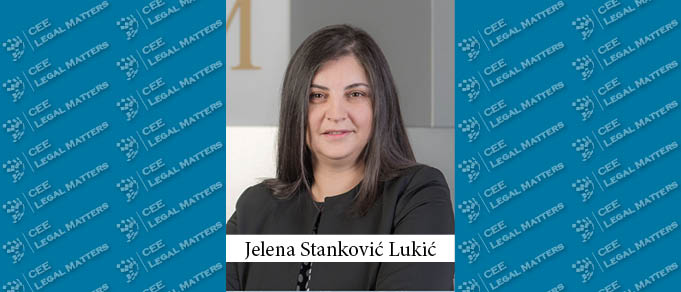Concentrations of greenhouse gases (GHG) in the atmosphere as a result of human activities are the cause of more extreme climate changes than those caused by nature. In order to reduce the effects and to enable the survival of the living world, it is necessary to reduce emissions on a global level.
The worst effects of climate change need to be reduced or limited. It might not be too late. The response to climate change will consist of mitigation - reducing greenhouse gas (GHG) emissions into the atmosphere and adaptation - learning to live with climate change and adapting to already existing changes.
By adopting of the Paris Agreement to the UN Framework Convention on Climate Change in 2015 and its entry into force in year 2016, the international community has confirmed that economic growth and investment accompanied by reduced GHG emissions will quickly become one of the demands of the international economy. At the level of the Republic of Serbia, in addition to the fulfilment of obligations towards the international community, the establishment of a system for reducing GHG and adapting to changed climatic conditions are one of the conditions for sustainable economic development of the country and for reduce of the losses from natural disasters and catastrophes.
The Serbian Law on climate change was adopted on 18 March 2021, and its implementation will establish a system for reducing greenhouse gas emissions and ensure adaptation to changed climate conditions. This law applies to GHG emissions (i.e. carbon dioxide (CO2), methane (CH4), nitrous oxide (N2O), fluorocarbons (HFCs), perfluorocarbons (PFCs), sulphur hexafluoride (SF6) and nitrogen trifluoride (NF3)) caused by human activity, as well as to the sectors and systems exposed to the effects of climate change.
The law fulfils the obligations under the UN Framework Convention and the Paris Agreement and harmonizes domestic legislation with European Union regulation.
As stipulated in the Law, the low carbon development strategy of the Republic of Serbia with an Action Plan should be adopted within two years, which will be valid for ten years, including the Program for adaptation to changed climate conditions. The National Council for climate change was established as an advisory body to the Serbian Government.
This Law further regulates issuing of permits for GHG emissions to the plant operator, issuing of approvals for the aircraft operator's monitoring plan, monitoring, reporting, verification and accreditation of verifiers and other issues of importance for limiting GHG emissions and adapting to changed climatic conditions.
Certain obligations are established for distributors and retailers of passenger vehicles. In order to inform consumers and make a decision on the choice when buying or leasing new passenger vehicles, it is necessary to ensure the availability of data on fuel economy and CO2 emissions from these vehicles. The retailer who places a model of a new passenger vehicle on the market is obliged to place or display a label on fuel economy and CO2 emissions of that vehicle at a point of sale or near the passenger vehicle, at his own expense, in a clearly visible manner. The supplier (manufacturer or importer) must send a list of models of all new vehicles that are subjects of sale on the territory of the Republic of Serbia to the Traffic Safety Agency in electronic form no later than December 31 of the current year. At least once a year, at its own expense, the supplier provides a guide on fuel economy, CO2 emissions and air pollutants and publishes it on its website and submits its electronic version free of charge to the retailer and to the Traffic Safety Agency.
The retailer is obliged to visibly display a poster or display with the data on official fuel consumption and official specific emissions of CO2 and pollutants into the air for all brands of a new passenger vehicle exhibited or offered for sale or leasing.
It is forbidden to confuse potential buyers of new passenger cars by using signs, symbols or inscriptions related to fuel consumption or emissions of CO2 and pollutants into the air.
Furthermore, the Law regulates the issuance of permits for GHG emissions to the plant operator, the issuance of approvals for the aircraft operator's monitoring plan and monitoring, reporting and verification. The government will prescribe the activities and gases for which a permit needs to be obtained. The permit for plant operators will be issued within a maximum of four months from the receipt of a complete application for the permit, based on a positive assessment of the Environmental Protection Agency. The Ministry will, ex officio, reconsider the issued permit every five years and, if necessary, make amendments to it.
An aircraft operator that holds an operating license in accordance with the law governing air traffic will be obliged to submit a monitoring plan for approval. The government will prescribe aviation activities and gases for which it is not necessary to submit a monitoring plan. The Ministry shall approve the monitoring plan within a maximum of four months from the receipt of the monitoring plan, based on the positive assessment of the Serbian Civil Aviation Directorate.
The plant operator and the aircraft operator are obliged to monitor GHG emissions based on the approved monitoring plan. In addition to this obligation, the aircraft operator may also monitor tonne-kilometres data. Operators are also required to establish and document written procedures for the collection and use of data in monitoring and reporting emissions. The operator is obliged to keep all data and documents for at least ten years.
The operator is also obliged to submit a verified report on GHG emissions to the Agency or the Directorate by March 31 of the current year, with a verification report for the previous calendar year.
Plant operators are obliged to provide data on historical activity levels for the reference period from 1 January to 31 December 2005, from 1 January 2008 to 31 December 2010 and from 1 January 2016 to 31 December 2017 - if they had performed relevant activities for at least one day in that period. This provision is retroactive, but is justified from the point of view of special importance for future obligations, i.e. the right of domestic operators to free allocation of emission units, which is determined in relation to emissions from the specified period.
The verification of the report is performed by accredited verifiers, according to the prescribed procedure. The Ministry will prescribe in detail the conditions that must be met by verifiers, the procedure and criteria for verification, as well as the content of the verification report.
The implementation of the law is supervised by the Ministry in charge of environmental protection, the Directorate, and the Ministry in charge of trade.
The environmental inspector supervises the application of the provisions of the law relating to the obligations of the plant operator, the aviation inspector over the application of the provisions relating to the obligations of the aircraft operator, and the trade inspector over the application of the provisions of the law related to the availability to consumers of the information on new passenger vehicles. For non-compliance with the provisions of the Law, corporate offenses and misdemeanours are prescribed.
Actions and duties established by this law shall be obligatory i.e. harmonization with this law must be carried out within certain deadlines from the adoption of by-laws which will regulate procedures, actions and obligations in more detail. These regulations shall be adopted within one year from the day this law enters into force. The provisions relating to aircraft operators shall apply from 1 January 2023.
In order to achieve the goals of this law, public bodies, in addition to adoption of specific by-laws and ordinances, should also adopt appropriate sectoral policies and measures. It remains to be seen how the provisions of this Law and other related regulations will be implemented in practice, especially having in mind the current problems of environmental pollution and particularly the growing problem of air pollution in Serbia.
By Jelena Stankovic Lukic, Partner, JPM Jankovic Popovic Mitic


